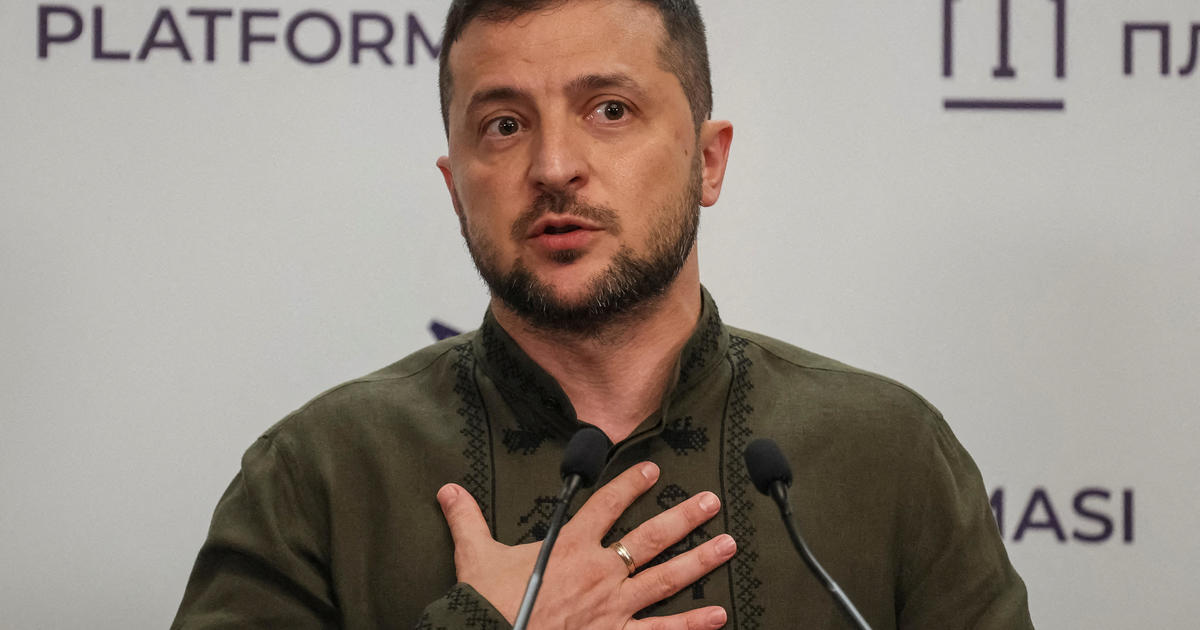Global turbulence, emerging technologies pose intelligence challenges, new strategy says
An unpredictable and combustible environment – both at home and abroad – poses unique challenges for the U.S. intelligence community, even as known threats like terrorism and cyber aggression endure, the newly released 2019 National Intelligence Strategy says.
The weakened international order, increased isolationism in the West, and a steady "democratization" of technologies in space, computing and communication, has resulted in a more level playing field among well-resourced powers and less capable ones. The latter may find engaging in disruptive behavior easier as a result, according to the strategy.
Director of National Intelligence Dan Coats personally briefed his staff on the strategy at his office's headquarters at Liberty Crossing on Tuesday afternoon.
"We face today the most diverse and complex set of threats that we have ever seen," he said. "They span geopolitical competition, WMD proliferation, violent extremism, intra- and inter-state conflict, and regional instability."
"We also see threats from cyberspace, and adversaries using emerging disruptive technologies against us," Coats said. "Our greatest concern comes from those threats merging together with our adversaries joining forces and leveraging new technology."
In a subsequent briefing with reporters, a senior ODNI official said an increasingly interconnected world could lead to partnerships in "some surprising areas amongst interested parties."
"Russia and China may be very interested in partnering with their technological base in areas of artificial intelligence," the official said. "What concerns us is when you see great powers combining to use strengths in ways that are no in our interests or not fair in terms of trade. And that's what we look for."
The strategy mentions space as a key area of concern. While Russia and China are aiming to "reach or exceed parity" in space with the United States and degrade its military advantage, other countries may also soon benefit from the "commercialization" of space capabilities and reduce overall security, according to the document.
"Many aspects of modern society – to include our ability to conduct military operations – rely on our access to and equipment in space," the strategy warns.
The senior official said space, once an area of "remarkable advantage" for the U.S., has become "a contested environment in a way that we never had before."
The unclassified document has been issued every four to five years since the cabinet-level office of the DNI was established in 2005; it is designed to articulate the 17-agency intelligence community's general priorities and identify its most significant challenges.
While the priorities outlined by the report have remained largely consistent for nearly two decades – agility, improved anticipatory intelligence and better integration have regularly been mentioned – the challenges it lists in 2019 for intelligence collection are somewhat more numerous and varied. In addition to threats from the likes of known adversaries like Russia, China and North Korea, the report warns of new and evolving threats from a wider range of actors.
"The empowerment of groups and individuals is increasing the influence of ethnic, religious, and other sources of identity, changing the nature of conflict, and challenging the ability of traditional governments to satisfy the increasing demands of their populations," the strategy says, noting an increased potential for instability.
In tone, the document diverges little from previous iterations issued in 2014, 2009 and 2005. Though it is not intended to be a political document it, unlike other strategies released during the Trump administration, is devoid of allusions to an "America First" ideology – President Trump's long-held organizing principle for the United States' posture vis a vis other nations. It maintains a consistent emphasis on the importance of international alliances and partnerships, and stresses the importance of transparency and of diversity in hiring.
"The [intelligence community] must be accountable to the American people in carrying out its national security mission in a way that upholds the country's values," it says.
Coats emphasized the benefits of increased transparency in particular, saying the intelligence community needed to be "as open with the American people as we can," and vowing to make transparency a "hallmark."
Being more forthcoming with the public, he said, "will make us stronger."
"It earns trust, it builds faith and it boosts our credibility around the world for our mission. It's the right thing to do," he said.
Here is the full National Intelligence Strategy:



